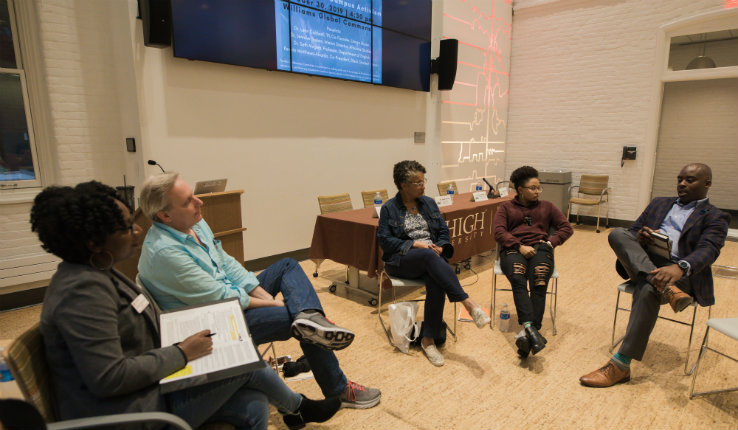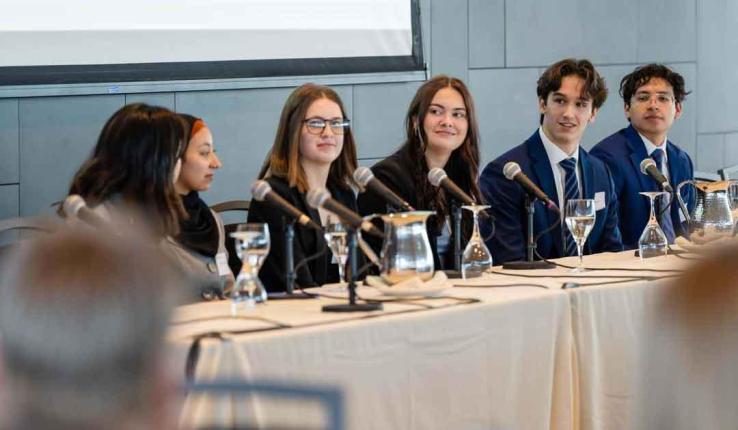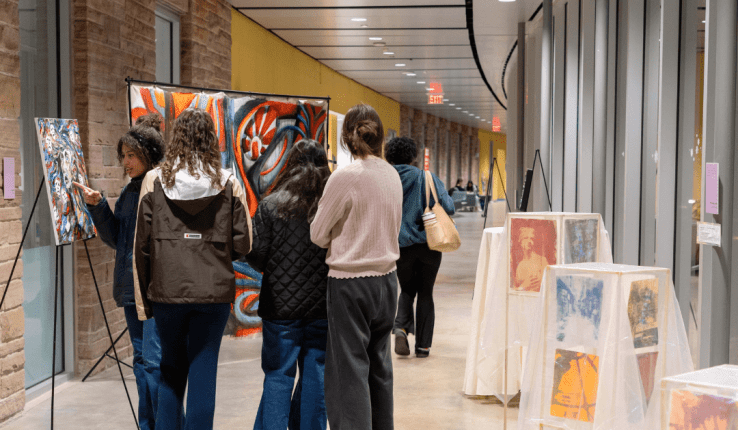What does activism mean to you?
The question, by Dahlia Hylton, co-chair of Lehigh’s MLK Committee, was posed to the four MLK Justice panelists who had come together Oct. 30 to discuss the “Evolution of Campus Activism.”
“In the simplest terms, for me looking at activism, is that you are a worker for social justice,” said Seth Moglen, professor of English. “... and what that means is that you are committed to finding ways to be equitable and democratic communities in which everyone flourishes.”
That entails identifying the inequities that exist in communities, he said, and collaborating with others to try to change things. “Being an activist is a lifelong enterprise,” he added.
In the hour-long discussion at Williams Global Commons, Moglen joined fellow panelists Leon Caldwell ’90, co-founder of Lehigh’s Umoja House; Jennifer Swann, professor of biological sciences and interim director of Africana Studies; and Kevelis Matthews-Alvarado ’20, co-president of the Black Student Union.
Caldwell recalled his efforts in the late 1980s to establish on campus the Umoja House, which opened its doors in Fall 1989 to become the first campus residence for “AAHANA” students (African American, Hispanic, Asian and Native American). He and fellow students wanted a more inclusive residential community option for students. Part of being an activist, said Caldwell, is “holding a vision” for what the outcome will be after the protests.
'Burner' vs. 'Builder'
Panelists also discussed “burner” activism, which is a disruption to existing power structures and norms, versus “builder” activism, which seeks to build new and more inclusive structures in the aftermath—two concepts identified in a December 2017 article in Inside Higher Ed.
Swann recounted the years-long effort to create a position of chief diversity officer at Lehigh. When the issue was first addressed at a meeting with a group of faculty years ago, she said, the effort was disruptive in nature but faculty members were trying to be constructive.
“Sometimes … it’s not clear what you’re doing,” said Swann, who considers herself a “builder.” “Sometimes in order to move from the status quo, it has to be bare-bones disruptive.”
Caldwell, too, said he saw himself as a “builder” but with “burner” potential. He said he was ready to stage sit-ins or the like to pave the way for Umoja House. But that was not necessary, he said, because then-president Peter Likins was so receptive to the proposal.
“To some extent,” he said, “somebody has to hold a credible threat.” But importantly, he said, activists have to have a strategy so that chaos doesn’t reign.
That’s the danger of the “burn,” Swann added. “But I understand. When you get a bunch of pent-up frustration, that’s when you let it loose … no matter how it starts out. But then the danger is that you burn yourself down.”
Matthews-Alvarado said that separating “burner” and “builder” activism takes away from the synergistic relationship between the two. If the structures that activists are trying to destabilize need changing, she said, then someone has to change the structures.
“I think you always need both,” she said.
The MLK Justice Panel was part of the MLK Celebration Committee’s year-long commitment to exploring the challenge posed by Martin Luther King in his final book—Where Do We Go From Here: Chaos or Community?—through the theme Reflection to Action.
The MLK Justice Panel followed a talk held a day earlier in Baker Hall by best-selling author and historian Ibram X. Kendi, who had been challenging people to rethink their understanding of racism and become more engaged in combating the policies that allow it to continue.
The final MLK Justice Panel of the Fall 2019 semester will take place Nov. 20 and will focus on the subject of reproductive justice.





